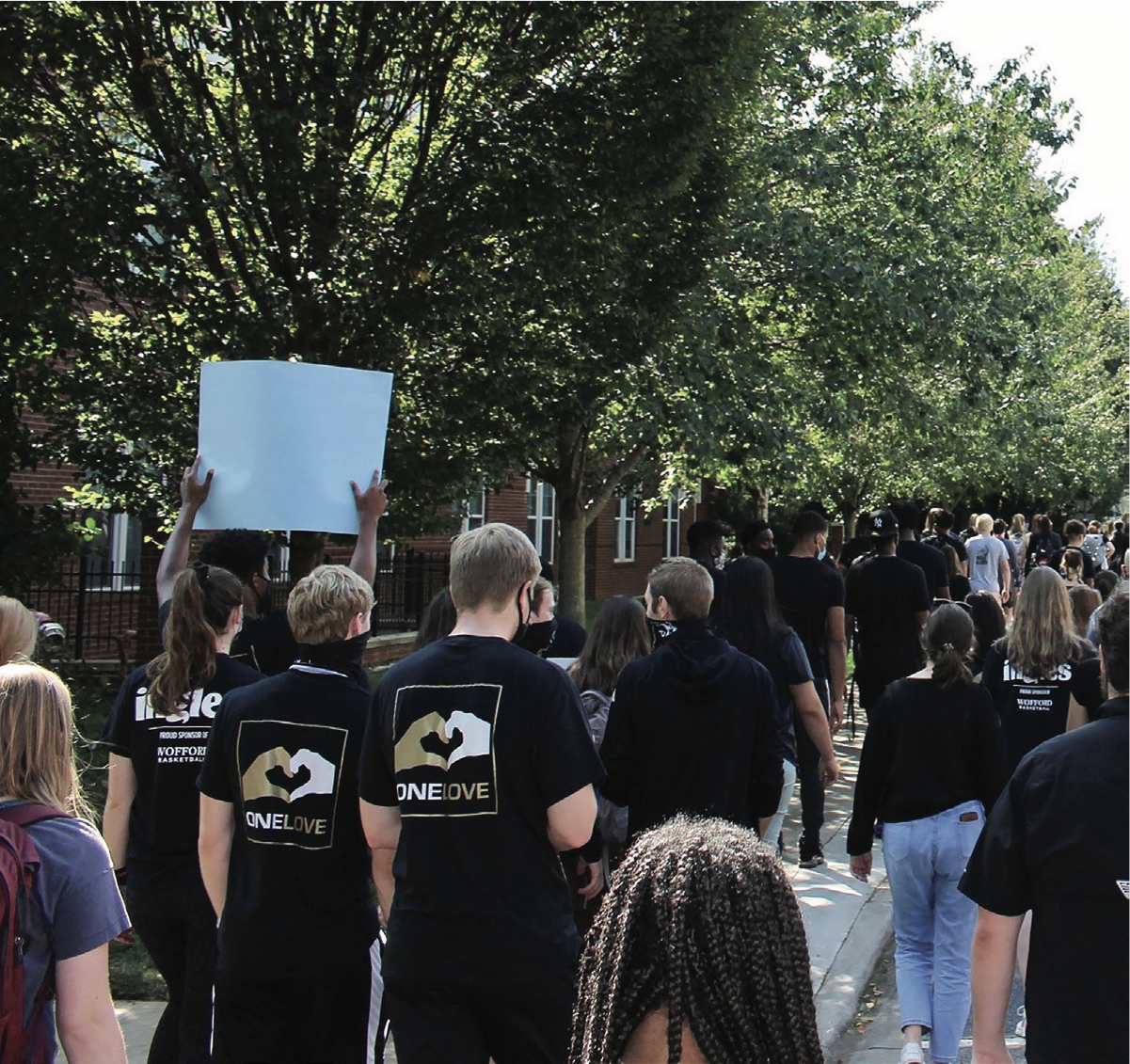Athletes and coaches demonstrate unity and commit to social justice
Like any other student organization on campus, Wofford’s Student-Athlete Advisory Commission (SAAC) is no stranger to limitations on programming due to the coronavirus restrictions. However, student athletes across all sports have engaged in projects, such as Terrier Story Time, that allow them to give something back to the community and to show that they care about the children in the Spartanburg community.
Within the Wofford community, SAAC continues to use its platform to try and affect change. Recently, SAAC held a panel put on by its Social Justice Committee during which players and coaches alike tackled and discussed issues relevant to today, including police brutality and social injustice.
Co-head of the Social Justice Committee, football player TJ Neal ’22, said that the panel “went really well” and that he walked away from the panel with “a different perspective.
Neal: “We know [how] us as players feel, but we just wanted to see what our coaches stand for…. I wasn’t expecting much, but I was actually surprised that some of the coaches I’d never met before really had my back and everybody else’s back in the Wofford community.”
Women’s Basketball Assistant Coach Trent Bunn, who participated in the panel, said that he was “honored when asked to participate.”
“I thoroughly enjoyed my experience. Despite not going into detail, that panel allowed me to share my story, my feelings and my beliefs. It’s extremely important as coaches we share our experiences. Not only is it a source of personal healing but our story could lay the foundation for acknowledgment in some and the healing in others.”
The other co-head of the committee, Karen Majewski ’22, added that she thinks it’s great that SAAC can be representatives of the student athlete community and that “the panel was a really great start and a good step in the right direction for more open discus- sion—things like that that we’re gonna participate more in.”
Neal felt that the panel and events like it give athletes more of a platform to speak up and make their voices heard. The “extra media attention” that comes with being a student athlete is something that he plans to use to his advantage moving forward.
One thing that may grab media attention is the “One Love” patch that will be featured on all athletic uniforms when seasons are cleared to begin. Designed by the SAAC Executive Board, Majewski said that the patches are meant to serve as a symbol of “our commitment to diversity and inclusion.”
Coach Bunn acknowledged Elena Pulanco ’22, a member of the Women’s Basketball team, and added that the One Love patch “exemplifies the spirit of Ubuntu,” who said, “I am, because you are.”
“It speaks to the fact that we are all connected,” Bunn said, “and that one can only grow and progress through the growth and progression of others. When it comes to matters of social justice, it’s important that we unify, listen and keep working as one.”
As for programming during the spring semester, Neal said that the athletes “haven’t thought ahead to that yet” and that SAAC is “just really going with the flow day by day because you don’t really know.”
Majewski echoed these sentiments, adding that, as many organizations across campus have expressed, programming has been “pretty hard” due to restrictions on gatherings.
Besides the Social Justice Committee, SAAC also has a committee on mental health awareness and another one for social media. As the year progresses and students remain hopeful to return to campus for in-person instruction during the spring semester, student athletes are hard at work thinking of engaging, thought-provoking events to affect change because, as Coach Bunn said, in the words of Reverend Dr. Martin Luther King, Jr., “It is not possible to be in favor of justice for some people and not be in favor of justice for all people.”





























